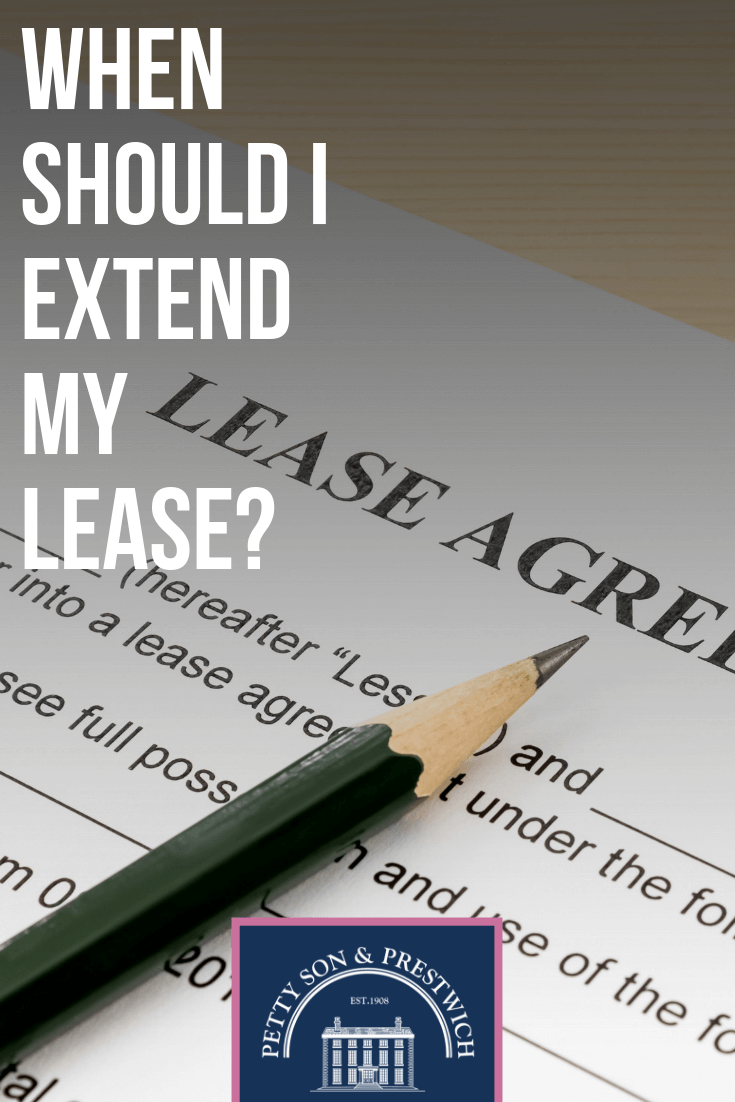If you are a leaseholder, you’ll be aware that the lease you hold only has a limited lifespan. You can, of course, extend your lease, but the big question here is when is it most prudent to do so? This is what we’ll be exploring in today’s article.
What is a lease?
Before we get down to the nitty-gritty, let’s quickly go over what exactly we mean when talking about the term ‘lease’.
As we explained in our article, Leasehold And Freehold: What’s The Difference?, having a lease entitles you to a temporary right to live in the property and occupy the land upon which it sits.
This may not seem ideal at first glance, but when you consider that leases are now generally granted at a fixed term of 125 years (or, in some instances, 99 years), things start to look a little more secure (well, maybe!). However, for properties being sold on you could find yourself with either a shorter or longer lease, should you be buying a second-hand property as opposed to a new build, for example.
Regardless of whether your leasehold home is new or old, every year you live in the property your lease will drop by the same amount, which brings us to the question at hand…
So, when should I extend my lease?
Eighty years is widely considered to be the magic number when it comes to lease extensions. Letting your lease drop below the 80 year mark means the premiums associated with extending it begin to jump dramatically as marriage value (the value increase generated by a new lease being granted) starts to become payable.
For example, a property valued at £225,000 with annual ground rent of £250 would incur a premium of anywhere between £6,500 to £8,500 if a new lease were to be granted when there are 85 years remaining. Eighty years left on the lease doesn’t see too significant a jump, with premiums rising to between £7,500 and £9,500 to extend, but left longer than that things start to get a little scary.
At 75 years, that same property’s lease could cost anywhere between £9,500 and £18,000 to have an extension granted. Leave it another five years and you’ll be looking at a premium of somewhere in the region of £15,000 to £23,000!
Rising premiums aren’t the only problem. If you think you can pass the buck and sell up, think again. Potential buyers will have an incredibly difficult time with lenders when searching for a mortgage if the lease is as low as 70 years, so you could well find yourself stuck with the unenviable choice between letting your lease run down as you continue to live in the property or a hefty bill to extend.
The takeaway
Although the figures stated above sound terrifying, it’s important to remember that they are entirely avoidable...providing you’re proactive and extend your lease at the right time.
Our message? Do not let your lease drop below 80 years!
We also recommend doing a bit of home on statutory leases, too. Luckily, we’ve already covered these in full here: Statutory Lease Extensions Guide
Another thing to bear in mind is that the numbers for the fictional property above are provided for guidance purposes only - they may not directly resemble your quote, even if the value and ground rent match. There are numerous lease extension calculators available online, but all of them will only be able to give you a rough estimate of your expected premiums.
Extending a lease is a complex and very individual process, so we highly recommend employing both a solicitor and surveyor with experience in lease extensions to help you through it. If you’re based in or around Wanstead, East London, we’d be happy to introduce you to reputable firms who’ll look after you and hold your hand throughout the process. Give us a call!
